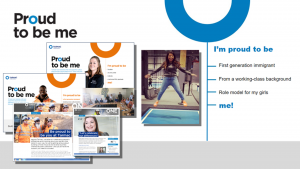Evidence shows* that inclusive organisations are eight times more likely to achieve better business outcomes and twice as likely to meet or exceed financial targets.
As Tarmac marks diversity day on 21 May, Louise Houston, head of inclusion and belonging, discusses how the journey to true inclusion and diversity is reliant on an engaged workforce. She also offers her perspective on how businesses can best nurture a fully inclusive culture.
She said:
- It starts at the top – it’s so important to have the buy in of your board. Your senior leaders will provide allyship and act as champions, role models and sponsors for change within your organisation. But to do this they need to understand the benefits, including commercial risks and opportunities, so go prepared with data.
- Take responsibility for broadening your knowledge/understanding – what was right today, may not be right tomorrow. As individuals, we need to make sure we educate ourselves on issues facing our people, especially our minority communities, to help remove barriers and support them effectively.
- Be ready to invest – establish an I&D function, strengthen policies, develop welfare facilities, and invest time and resource into your people and HR function so that you’re set up to drive meaningful action.
- Invest in yourself – you can attend all the training courses but only by going on your own journey of discovery and opening up your mind (which may at times be uncomfortable and honest) will you start to move forward.
- Know where you are, where you want to be and measure your progress – once you start exploring the I&D agenda, you open a pandora’s box. Employee research will help you really understand your company’s focus areas and priorities.
- Be genuine – closing the ‘say-do’ gap, this is where true allyship comes in and where business leader sponsors can add real value. Furthering the I&D agenda mustn’t be seen as simply a tick-box exercise. For true cultural shift, all employees need to be engaged and able to contribute. That’s when change happens.
- Progress over perfection – sometimes starting is the hardest part and you can spend a lot of time worrying about saying the wrong thing. What I’ve learnt is as long as you have the right intent and approach things with a learning mindset, you’ll be set to start your journey.
- Find your ‘why’ – what’s the purpose of further developing an inclusive culture in your business? This could be a personal, social, safety or economic reason.
- Finally, it’s not a competition – listen, share best practice (both within and outside of your industry) and shamelessly steal great ideas! Making all workplaces fully inclusive is the overall ambition.
In 2019, Tarmac launched its ‘Proud to be me’ campaign to celebrate diversity across its operations and to build a more inclusive company. The initiative followed a business-wide survey into how it feels to work at Tarmac.
Now embedded company wide, employees are invited to share with their colleagues a ‘Proud to be me’ presentation slide via team meetings, at events and in operational settings. The exercise is designed to allow colleagues to honestly highlight things they are proud of – be it hobbies, identity, background, family or career achievements.
‘Proud to be me’ is just one of the ways in which Tarmac employees are encouraged to bring their whole, authentic selves to work. The approach is underpinned by Tarmac’s inclusion and diversity vision: to foster a fair and supportive culture that promotes opportunities for all – where everyone feels proud to be themselves.

Tarmac’s ‘Proud to be me’ Campaign
*Deloitte review 2018

